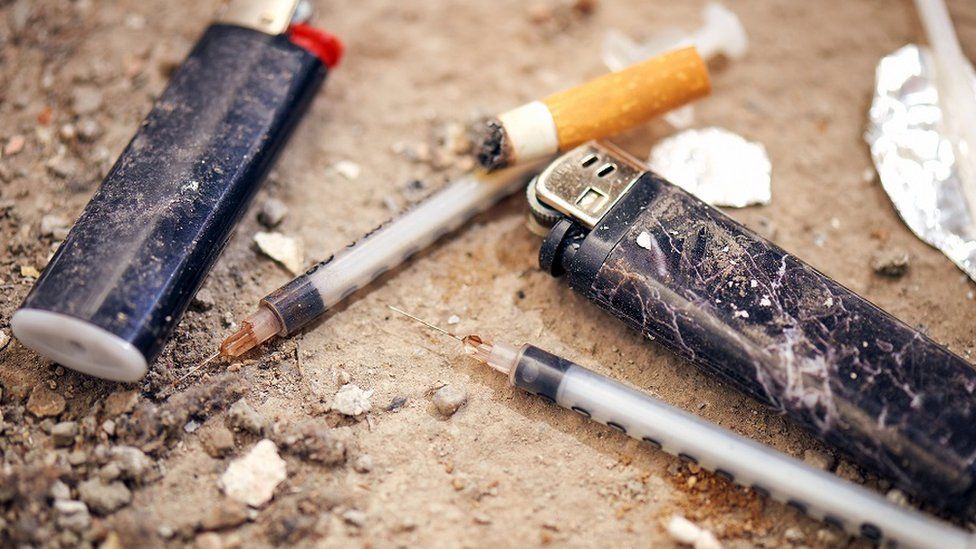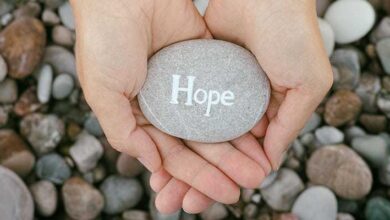Heroin can alter brain functioning which can lead to impulsive decisions, impairment in executive functions, alter memory functioning and cause impairment in many other functions.
“I wanted it like nothing before,
it took me to a different world.
The pleasure was surprising,
but it wasn’t eternal.
My craving, my hunger kept on increasing,
everything else was fading.
A day came! When nothing could satisfy my hunger,
I overdosed myself for the same pleasure
And then it ended!
It ended without a good bye note!
It ended with tears in eyes of everyone I once loved!
It ended! The hunger over which I had no control!
It ended! I ended!”
Dependence
Heroin is a highly addictive drug made from morphine, derivative from a natural plant known as poppy. Heroin can be smoked or snorted or mixed with water and injected with a needle. Injectable Heroin use is very common nowadays and it carries the highest abuse potential because it delivers a large bolus of the drug directly into the blood stream, which is rapidly transported to the brain. Addiction is a cycle that has three stages.
In stage 1, binge/intoxication, a person consumes the drug and experiences the pleasure. In stage 2, withdrawal/negative affect, in the absence of the drug the person feels a negative emotional state. In stage 3, preoccupation/anticipation, a person again looks out for drugs after being abstinent.
Is heroin harmful?
Often youngsters address heroin as a ‘party drug’; they say we can quit anytime. We will quit soon; but once they consume the drug, then eventually the drug starts consuming them. Drugs alter functioning in important brain areas which leads to the urge of compulsive drug use that pulls the person down into addiction. Heroin can alter brain functioning which can lead to impulsive decisions, impairment in executive functions, alter memory functioning and cause impairment in` many other functions. Heroin users experience a lot of medical complications like lung complications which may cause due to the heroin’s effect of depressing respiration. Many may experience mental health issues like depression, anxiety and also aggravating personality disorders like anti-social personality disorder. Chronic injection use can lead to scarred and collapsed veins, infections in blood vessels, abscesses and other soft tissue infections. Many of the additives in street heroin may include substances that do not readily dissolve and result in clogging the blood vessels that lead to the lungs, liver, kidneys, or brain. This can cause infection or even death of small patches of cells in vital organs. Immune reactions to these or other contaminants can cause arthritis or other rheumatologic problems. Sharing of injection equipment or fluids can lead to some of the most severe consequences of heroin use—infections with hepatitis B and C and HIV. Infact, Hepatitis C virus (HCV) infection is common among injection drug users (IDUs).
Heroin use can also lead to overdose which can occur when a person takes opioids usually in combination with other drugs, in quantities that the body cannot handle. Overdose can be fatal, and is one of the most common causes of death among opioid dependent users.
Heroin and Kashmir:
Drug abuse is a reality of Kashmir. Dating back to few decades there were hardly any substance users reported. Cannabis had a socially accepted connotation in some areas of Kashmir where CHARAS TAKYAS were held, a place where ‘Charas’ was consumed to connect to God but since past the 2000’s there has been a major shift: people started consuming pharmaceutical opioids and in past 6 years HEROIN- AN ILLICIT DRUG has become predominant in Kashmir.
Heroin is an illicit drug which is easily available in our valley and is being used by all age groups, people of all socio-economic backgrounds and people from different array of professions. This drug has crossed all bars of notions we have had about drug abuse.
The picture of Heroin in Kashmir is very serious but it’s visible to us just as the tip of the iceberg, we don’t know the depths of it. Researches are now being done to understand the pattern and prevalence of Opioid Use- especially Heroin in Kashmir, one study conducted by Prof. (Dr.) Yasir Hassan Rather in two districts of Kashmir and pointed that the prevalence of Opioids was 1.80% whereas the overall prevalence of any substance dependence was 1.90%. 84% of the opioid users were using Heroin, with injection drug use of 0.95%. 57% used opioid before or at the age of 20 years. 37.7% of opioid users were having history of overdose. 91% among them using IV heroin as main drug.The daily expenditure on consumption of Opioid in two districts of Srinagar and Anantnag was found to be Rs 3.7 crores.
There are increased reports of deaths due to overdoses in Kashmir, often covered by media- sometimes the cause is mentioned and often its attributed to unknown causes.
Covid-19 led to increase in heroin use?
Covid 19 pandemic isn’t just about an illness, it has many associated factors along with it. The major one being the lockdown which led to disruption in routine life, closure of schools and colleges, work from home mode, emotional stressors, financial issues and many mental health concerns like fear and uncertainty, excessive worry and low mood. These factors somewhere contributed to the increase in heroin use in our valley. Many started heroin to waive off the boredom, to escape from their problems or just out of curiosity. Many patients who were abstinent since past quite some time but were on treatment had relapses either because they couldn’t reach out for treatment in initial days of lockdown or were not able to bear the stressors as suddenly everything was disrupted.
What can be done?
Heroin Use! Some call it a crime, some view it through the prism of morality, bad parenting and modern societal trend, but is it really just so benign or it’s a serious mental health issue?
Some of the immediate measures that we all can do to prevent this epidemic from spreading are:
· Conducting awareness programmes in schools and colleges about the Heroin use and other drugs and how they can affect us.
· Talking to our children about it, bringing in awareness before they try it out of curiosity.
· Watch out for warning signs of drug use, not ignoring the signs of drug use.
· Teaching children healthy coping mechanisms and appropriate ways of venting their emotions- this will prevent them from using substances as a negative coping mechanism for their problems.
· Not stigmatizing drug abuse by considering it as a weakness of character, or as a criminal act.
· Seeking out help of professionals for adequate and appropriate treatment. IMHANS-K has a drug de-addiction centre which provides all sorts of treatment related to substance use.
A collaborative approach – family, friends, schools and colleges, govt administration all need to join in hands together to fight this problem together for a better future of our youth.
Its high time to accept that scenario of drug abuse in Kashmir is a ticking time bomb.
Zoya Mir is M.Phil Clinical Psychology Scholar, trained in Motivational Interviewing for Addiction from MI Institute, USA, Cognitive Behavioral Therapy from Beck’s Institute, USA.
Disclaimer: The views and opinions expressed in this article are the personal opinions of the author. The facts, analysis, assumptions and perspective appearing in the article do not reflect the views of GK.





